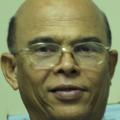According to the state-run newspapers, the President also pledged to start political dialogue soon after signing a nationwide ceasefire agreement. He guaranteed that the military and the government stand united in working on peace. He stressed that the implementation of peace and stability are his administration's main goals.
The primary criticism from the ethnic groups is that the President Thein Sein and his person-in-charge of peace process maintain economic development as key strategy. They look like considering the economic development of ethnic regions will solve the peace and conflict problem. It is indisputable that economic growth and job opportunities are necessary issues, but without addressing the corruption among the government officials, economic improvement may be a castle in the air. Besides, president should not overlook the core of the impasse is political negotiation.
In addition, the President and the military spokespersons have repeatedly made complaint the ethnic armed groups to lay down their arms, establishing political parties, contesting the elections and entering into parliament, then amending the constitution. The idea is almost impracticable to the ethnic opposition groups. To lay down their arms without any political settlement is out of the question for the ethnic armed groups.
Moreover, ethnic groups disbelieve to hold dialogue under 2008 Constitution. Instead, ethnic groups have asked meaningful political dialogues with no precondition. The constitution was drawn by the previous military junta and prohibits presidential candidates with a foreign spouse or child, a paragraph intentionally put in charter rejecting Suu Kyi as her two sons are British citizens. The charter also allows a quarter of parliamentary seats for unelected military officers with promises to set aside the defense, home and border affairs ministries under the military.
Speaking while on a trip to Australia in November 2013, Burmese opposition leader Aung San Suu Kyi told an audience at the Sydney Opera House that the country had still not "successfully taken the path to reform" because the military-written 2008 constitution bars the country from becoming a democracy.
Burma's
main opposition NLD party led by Aung San Suu Kyi has called, during recent
nationwide campaign, for public support for her party's proposal to ratify
constitutional reform particularly for Article 436. Aung San Suu Kyi has called
again and again that Article 436 barred to amend every article of the 2008
Constitution. It says every amendment proposal must be approved by 75 percent
of representatives in both houses of parliament. As the military holds 25
percent of all seats, it effectively holds veto power over the Constitution,
she says.
In an interview with Reuters on 3rd April, the Nobel laureate told
Reuters that her opposition National League for Democracy (NLD) party was
"ready to govern" but that President Thein Sein was insincere about
reform and might try to postpone the election. It is also remarkable that Aung
San Suu Kyi has an option of boycotting the upcoming elections.
If a military-drafted constitution unchanged barring her becoming president, Burma's political scenario ahead of 2015 General Elections seems to be unrest and chaotic.
In last
March, there were students' protests against a freshly accepted education law
that the students say cut back academic freedom, according to media news. According
to the Assistance Association for Political Prisoners (Burma), there are 105
students under arrested including 27 facing trial in Thayawaddy and Myingyan
prisons.
Detaining students who protest for academic freedom shows an undemocratic practice of previous dictatorial regime. Consequently, a serious doubt emerges among public due to regime's crackdown on Students' Union. A question emerges in public: Will the existing government carry on free and fair election in coming November?
(Note: You can view every article as one long page if you sign up as an Advocate Member, or higher).





